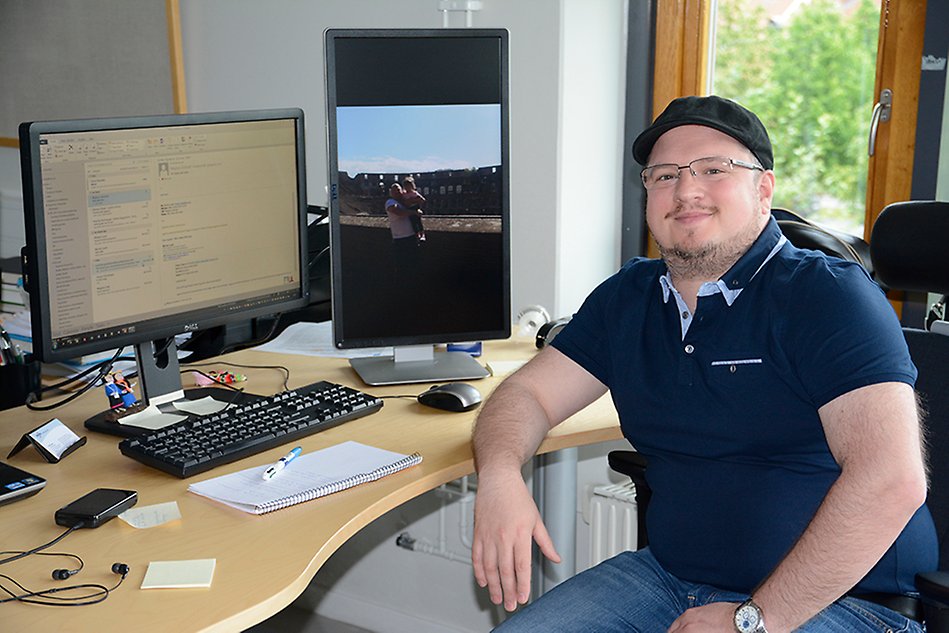Michal Lysek, Innovation Sciences
Michal Lysek is an industrial doctoral student in Innovation Sciences. He feels that life as a doctoral student means both freedom and self-discipline when it comes to his own time.

Michal Lysek.
What is your research field?
”My focus is on ’innovation management’. My research includes a case study of the industrial communication company: HMS Industrial Networks AB, focusing on three areas. HMS' past: What did the HMS do to become a world leader in industrial communication? Present: Why is HMS not as innovative today compared to what they were before? Future: What does HMS need to do to continue to be innovative in the future?”
What's it like to be a doctoral student?
”It is great fun. It suits people who like to work a lot and also those who like to have a large say in the decisions concerning their work. Of course, I have some meetings and courses that I must attend, but apart from this, I can decide my own working hours.
I do not teach at the University. My doctoral student position is designed that instead of teaching, I spend working on my projects at HMS.”
What's it like being a doctoral student while at the same time being linked to a company?
”As an industrial doctoral student, you have to be prepared to work a lot and work hard. I have pretty long hours, even at weekends. However, I do have a fixed salary which is probably better than what many qualified professionals with a PhD degree normally have, so I do not waste time applying and looking for research grants or other forms of income. Before I started my doctoral education, I worked as a development engineer (programming) at HMS, and I have the same salary now as then.
The best thing about being an industrial doctoral student is the freedom of being able to work how you want, and the knowledge that you get. In the end, it is the result and what I have achieved that counts. Within HMS we have the saying: ’freedom with responsibility’. Furthermore, innovation is also an incredibly exciting field of research.”
What's a typical day like for you?
”My working day is very much steered by what has to be done. If I need to collect empirical data, I work at HMS. If I need to collect new knowledge or analyse the data that I already have, I work at the university. Some days I am at the library. Other days I work from home as I have a large work desk full of documents and materials that I need to work my way through. I decide myself where to work. In the afternoon, for example, I might take a break to collect my daughter from the kindergarten, spend some time with the family, and then work later in the evening.”
Do you have any advice for new doctoral students?
”You have a lot less time than you think, so do not waste it. You need to start collecting data and analysing as soon as possible. The most important thing is to find a direction of your research; however, this can be very difficult. As a doctoral student, you can choose one of two paths. Either you start by reading as many scientific publications as possible to form a solid theoretical base. However, be careful as you can get stuck reading other peoples' articles for 2 / 3 years before you find your own direction. The second way is to start by collecting empirical data, analyse it; thus, letting the results show you the way. That was what I did, which I think worked for me. It helped me in both focusing and finding my direction.
A good idea is to study at least one good course in classical methodology to find a way to conduct your research that suits you. In my case it was ’grounded theory’ that helped me get on with my work. It is the method that inspired me, and the method I use in connection with all the research I do.”
Text and photo: Mikael Evard

